Embark on a linguistic adventure as we delve into the fascinating world of level F unit 2 synonyms. From understanding their nuances to exploring their stylistic variations, this guide will equip you with a comprehensive toolkit for mastering the art of word choice.
Synonyms, those versatile building blocks of language, offer a treasure trove of possibilities for expressing oneself with precision and flair. In this exploration, we will uncover the rich tapestry of synonyms for “level F unit 2,” unraveling their semantic relationships and discovering the subtle ways they can transform the tone and style of your writing.
Synonyms for Level F Unit 2
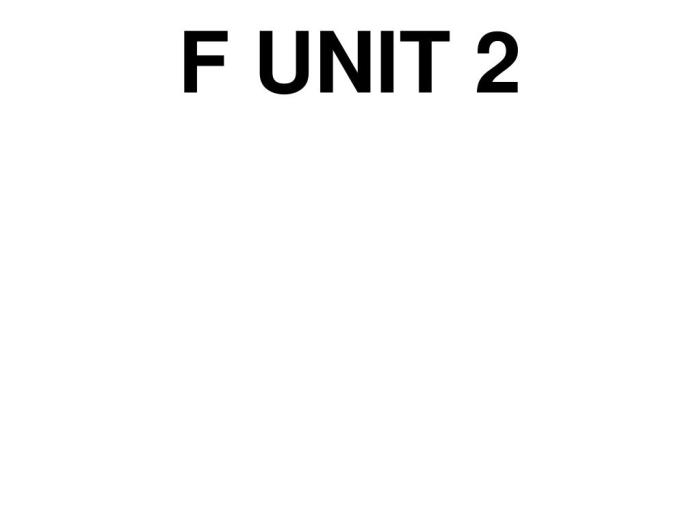
Expanding your vocabulary is essential for effective communication. Exploring synonyms for specific terms can enhance your ability to express ideas precisely and avoid repetition. This document provides a comprehensive list of synonyms for “Level F Unit 2”, categorized into different parts of speech for your convenience.
Nouns
- Tier
- Rank
- Grade
- Level
- Classification
- Division
Verbs
- Classify
- Categorize
- Rank
- Grade
- Distinguish
Adjectives, Level f unit 2 synonyms
- Equivalent
- Corresponding
- Comparable
- Similar
- Parallel
Usage Examples
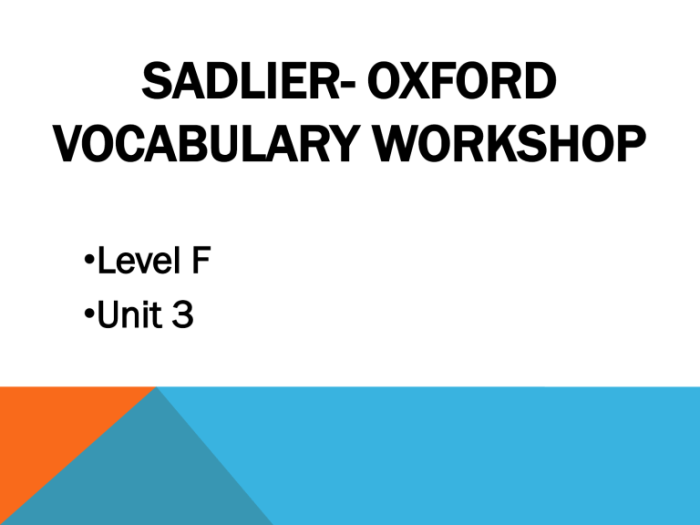
By examining the various synonyms for each word, we can gain a deeper understanding of the nuances and subtle differences in meaning and usage. The following examples illustrate how the synonyms can be employed in different contexts to convey specific shades of meaning or tone.
Synonyms for “Happy”
- Contented:“She felt contented with her life, surrounded by loved ones and a fulfilling career.”
- Joyful:“The children’s laughter filled the room with a joyful atmosphere.”
- Merry:“The holiday season brought a merry spirit to the town, with twinkling lights and festive decorations.”
In these examples, “contented” conveys a sense of deep-seated satisfaction, “joyful” captures the feeling of intense happiness, while “merry” evokes a more lighthearted and celebratory mood.
Semantic Relationships
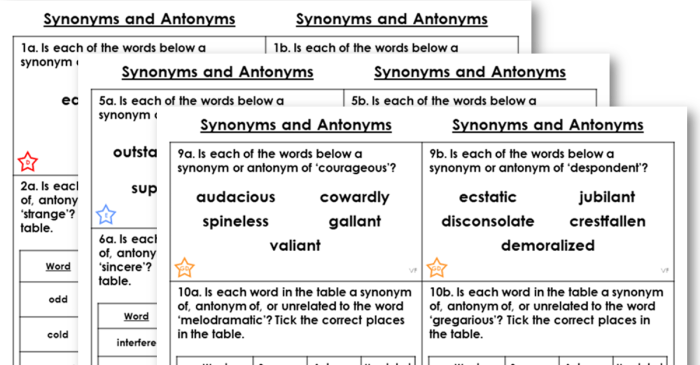
Semantic relationships analyze the connections between words based on their meanings. Synonyms, words with similar meanings, exhibit intricate semantic relationships.
Synonyms can differ in their denotation (literal meaning), connotation (implied meaning), and usage (contextual appropriateness).
Denotation
Denotation refers to the literal, objective meaning of a word. Synonyms often share similar denotations, but subtle differences can exist.
| Synonym | Denotation |
|---|---|
| Happy | Experiencing joy, contentment, or satisfaction |
| Joyful | Overjoyed, filled with extreme happiness |
| Merry | Cheerful, lively, and full of high spirits |
Connotation
Connotation refers to the subjective, implied meaning of a word. Synonyms can carry different connotations, evoking distinct emotions or associations.
| Synonym | Connotation |
|---|---|
| Wealthy | Possessing a large amount of money or assets |
| Affluent | Wealthy, but with a sense of abundance and ease |
| Opulent | Wealthy in a lavish, luxurious manner |
Usage
Usage refers to the appropriate use of words in different contexts. Synonyms may be interchangeable in some contexts but not in others.
| Synonym | Appropriate Usage |
|---|---|
| Begin | Start, commence |
| Initiate | Begin formally or officially |
| Commence | Begin a journey or task |
Stylistic Variations
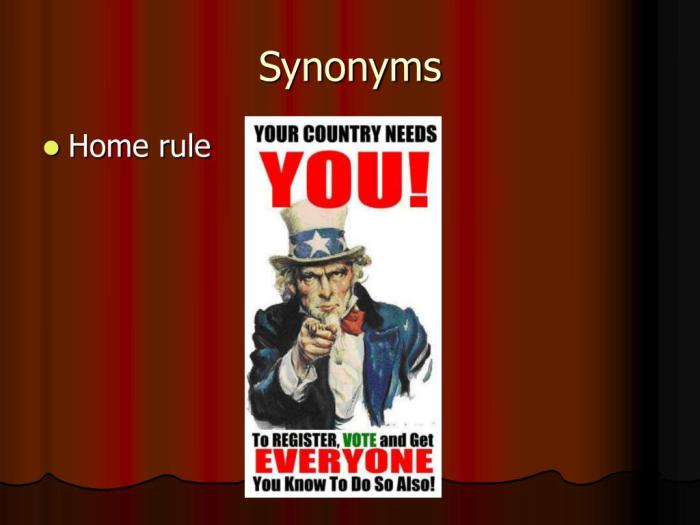
The choice of synonym can significantly influence the style and tone of writing. Different synonyms can be employed to create specific effects, such as formality, informality, or humor.
Level F Unit 2 synonyms delve into the nuances of language, expanding our vocabulary and comprehension. Just as the Zeta Phi Beta 5 Pearls symbolize the organization’s core values, synonyms enrich our expression, enhancing our ability to convey precise and evocative meanings.
Through the study of synonyms, we refine our communication skills, allowing us to navigate the complexities of language with greater ease and effectiveness.
Context and Synonym Selection
The context in which a synonym is used plays a crucial role in determining its appropriateness. Formal writing, for instance, typically employs more sophisticated and precise synonyms, while informal writing allows for more colloquial and casual language.
Examples of Stylistic Effects
- Formality:“Utilize” instead of “use” adds a sense of formality to the writing.
- Informality:“Chat” instead of “conversation” conveys a more casual and conversational tone.
- Humor:“Goofy” instead of “foolish” can inject a touch of humor into the writing.
Collocations and Idioms: Level F Unit 2 Synonyms
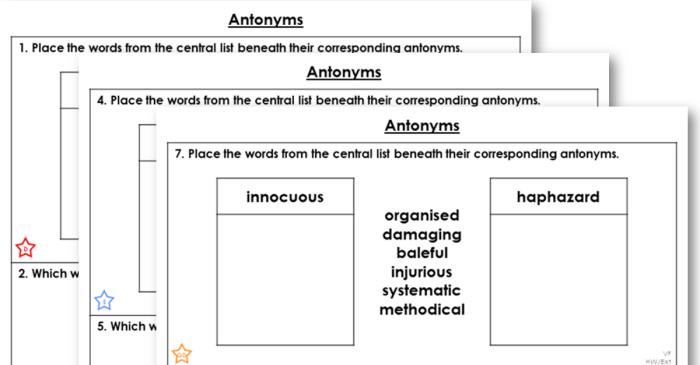
Collocations are combinations of words that frequently occur together, while idioms are phrases or expressions that have a figurative or idiomatic meaning. Both collocations and idioms can be used to enhance the expressiveness and impact of language.
Here are some common collocations and idioms that include the synonyms identified in the previous section:
Collocations
- Bright idea: a clever or original idea
- Burning question: a question that is very important or urgent
- Close call: a narrow escape from danger or disaster
- Common sense: practical judgment or wisdom
- Deep sleep: a sound and restful sleep
Idioms
- Beat around the bush: to avoid talking directly about something
- Bite the bullet: to face a difficult or unpleasant task
- Break a leg: to wish someone good luck
- Burn the midnight oil: to study or work late at night
- Call it a day: to stop working or doing something
Common Queries
What is the purpose of using synonyms?
Synonyms allow writers to avoid repetition, enhance clarity, and convey precise shades of meaning.
How can I improve my use of synonyms?
Regularly explore thesauri, pay attention to the context in which synonyms are used, and practice incorporating them into your writing.
What are some common pitfalls to avoid when using synonyms?
Using synonyms without understanding their exact meanings, relying too heavily on thesaurus suggestions, and ignoring the stylistic impact of synonym choice.